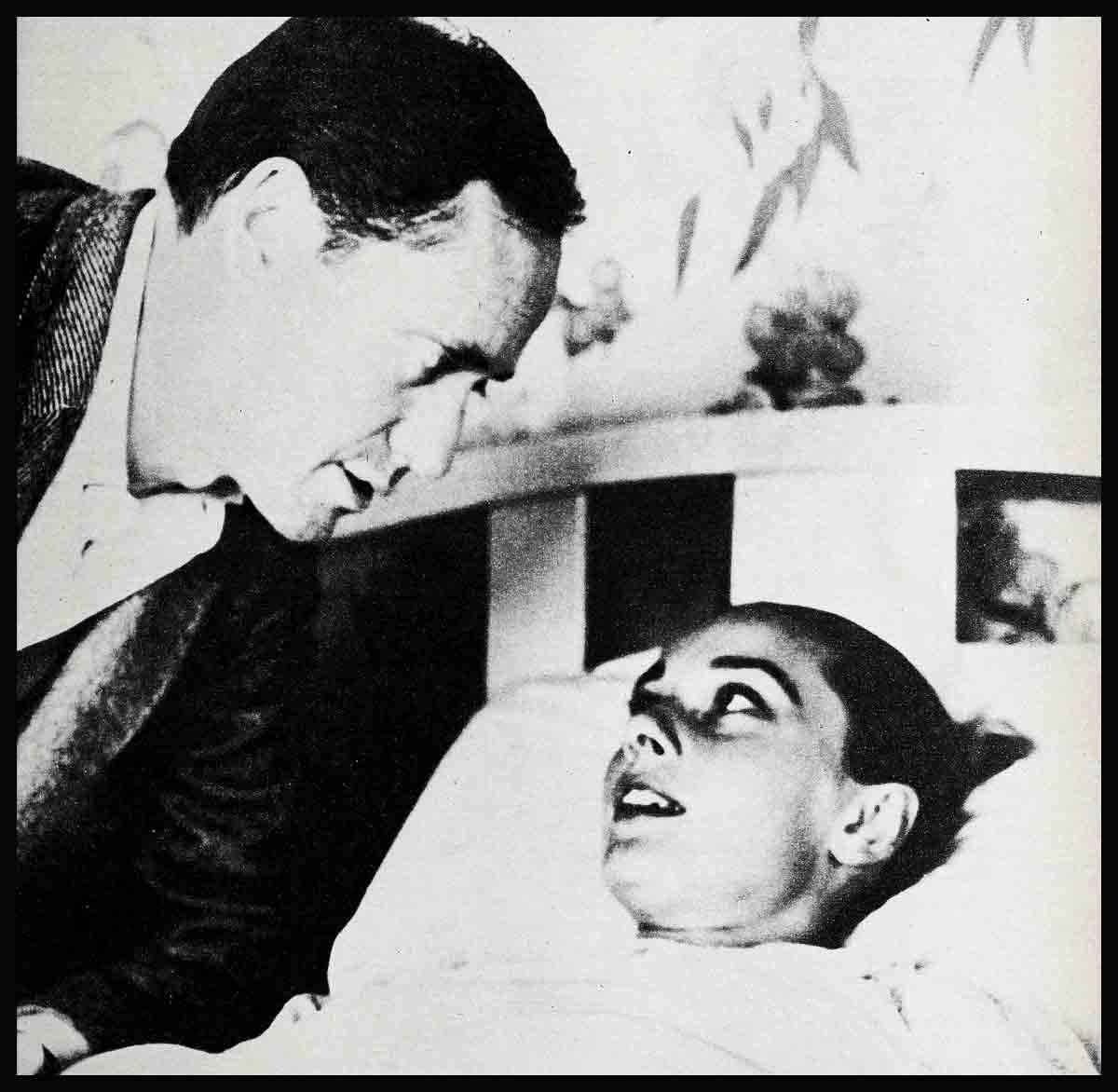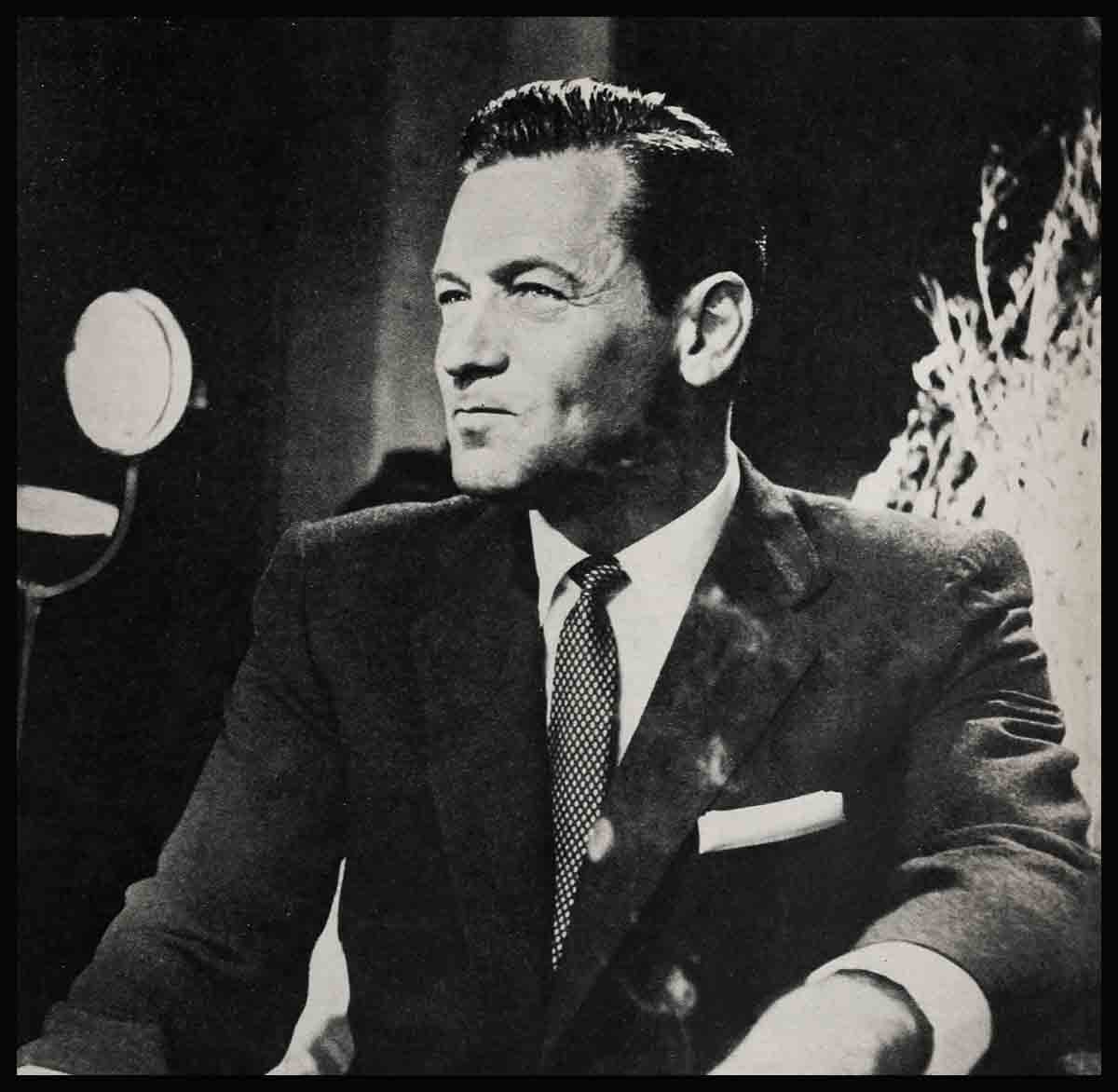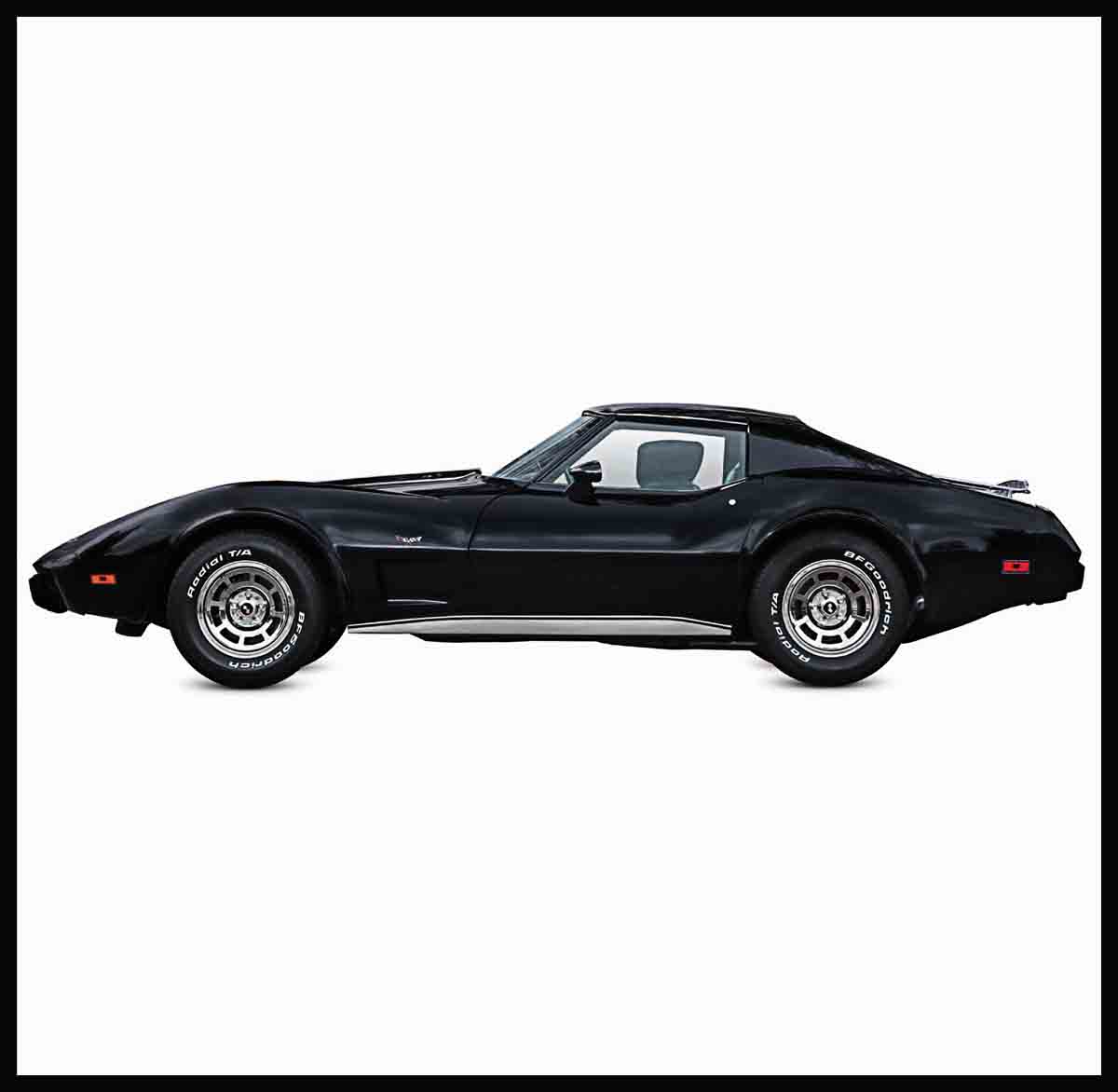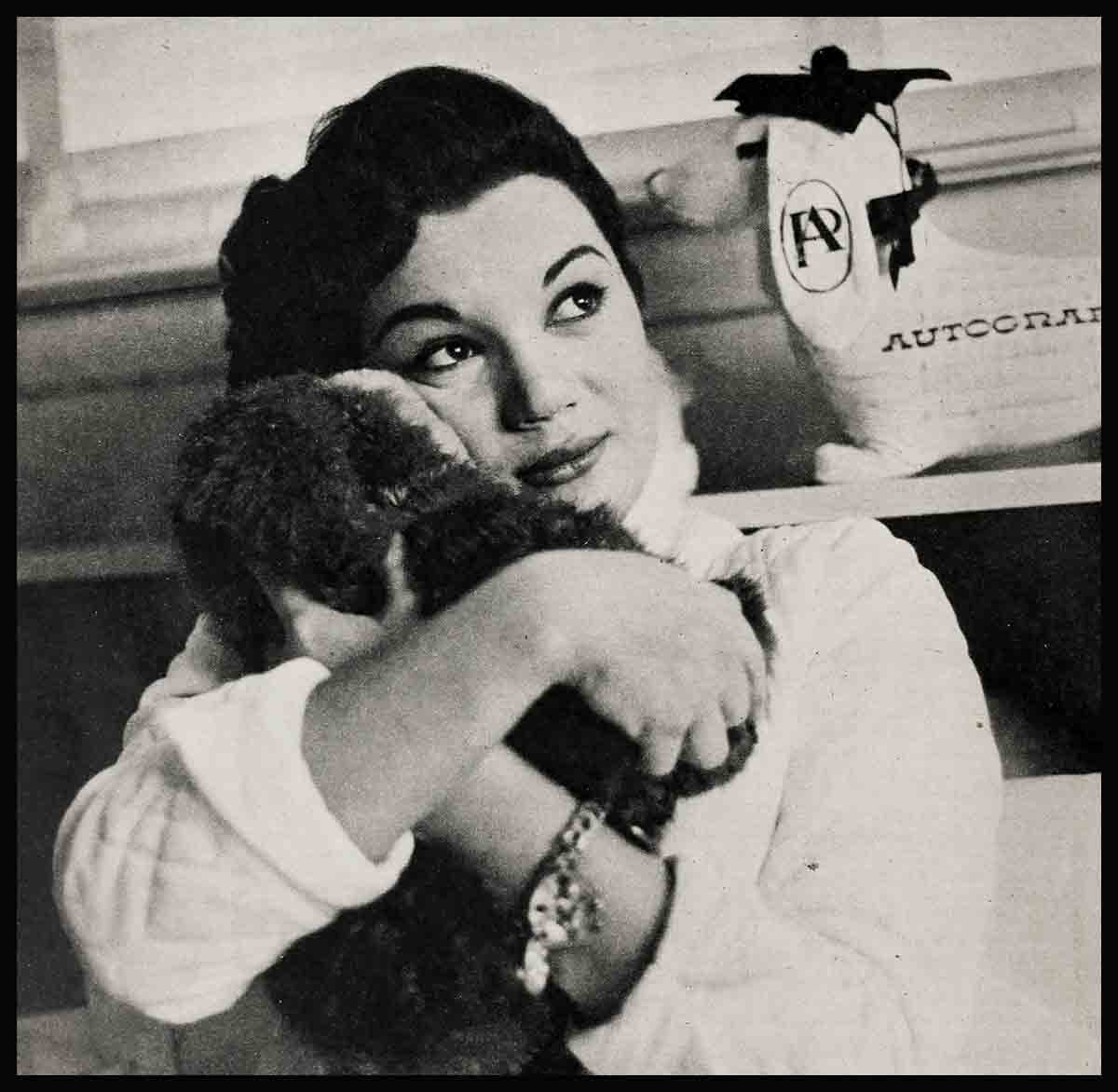
Audrey Hepburn: “Please, God, Help Me Walk Again”
A shaft of Mexican sunlight suddenly squeezed its brilliance through a narrow slit in the drawn curtains, splashing light into the small bedroom. The thin, waif-like girl, lying flat on her back, smiled weakly, turning her head slowly to look at the pattern the sunlight had formed on the edge of the bedclothes.
As she turned, a stab of pain cut across her back and she gave a small cry of pain, letting her head fall swiftly back on the white pillow. She could not move.
Below, in the colorful city street—the one they called the Street of November the Twentieth—she could hear the excited cries of the street vendors in the market opposite, the angry tones of two men arguing hotly in Spanish over the impatient honk of a car trying to get by.
They’re busy people . . . happy people. And they can . . . walk. Her mind had to fight to form the word and as it did so her body tensed itself until she was crippled again with an agonizing pain.
Then, as she lay there, she heard the sound of creaking as the door by her side opened very very slowly.
“Entre . . . no esta dormiendo,” whispered a woman’s voice, as two men, both dark-haired and sallow-skinned, walked softly into the room. One was clean-shaven while the other wore a heavy beard.
“Audrey, are you feeling better?” asked the clean-shaven one in a pleasing Spanish tone, as he walked over to her bed. He lifted her hand to feel her pulse-beat.
“Am I going to be able to move, doctor?” she asked.
“Very soon, we hope,” he said, patting her hand as he placed it gently back down on the blanket. Then he walked towards the window where the other man stood reading a chart, and they began speaking in low tones that she could not make out.
I’ve seen him somewhere before, she thought to herself, as she watched the bearded one, and she smiled as she noticed him gesticulating with his hands the way many Mexicans do as they speak. Isn’t that Macaco, Dr. Hernandez’s assistant? Isn’t he the one who drove me here in the station wagon?
“. . . muy mal . . . la espalda . . . permanente . . .” She could only understand a few words and yet . . . permanente! Surely it could only mean one thing. For a second a look of fright came into her eyes and her mind began forming horrifying images. Then she relaxed again as the doctor turned and came back to her bedside while Macaco slipped outside carrying stretcher equipment which had been stacked in a corner.
She watched him as he crossed the room and kept saying to herself, “You must be brave. Don’t let him. see you’re afraid. Ask him now—ask him what’s really wrong.” Tiny beads of sweat started forming on her forehead.
“Doctor,” she began slowly, “I want you to tell . . .”
He chain softly, “You must not talk. You must rest and then you will be better more quickly. Try to sleep and soon your husband will be here.” He smiled.
“He said he’d be here by now . . .” she murmured.
“Don’t worry.” he assured her, speaking softly. “He’ll be here, just as soon as he can.” The doctor patted her hand again, reassuringly. He hadn’t wanted to worry her with the news that Mel’s plane had been grounded in the north of Mexico after running out of gas. Mel had only just called to tell him, saying that he would be sure to be there by early morning—and not to let Audrey know he’d had trouble.
The doctor looked down at Audrey as she lay still. Gently he slipped a thermometer in her mouth and a few seconds later took it out, looked at it, nodded his head and shook the instrument. Then quietly he left the room, shutting the door softly behind him as he went.
It was too painful to move, but Audrey found that just by the slightest tilting of her head she could see almost all the way around the room. And from that uncomfortable, horizontal position, she first rested her gaze on the ceiling—the smooth, white-glazed ceiling, then on the brightly-colored flower-patterned wallpaper opposite and finally on the little rose-buds which decorated the long-sleeved flannel nightgown they had insisted she wear against the bitter night cold which swept into Durango, the city where she lay, even after the hottest summer days. For they were high in the mountains.
She tried to move again. She felt too warm. Her fingers searched for the tiny electric bell which had been placed near her right hand. But as she was about to press it she changed her mind. There’s obviously nothing they can do, she thought.
She turned her head from side to side, feeling as though she had been lying there for an eternity. Even the sun had disappeared. She thought back over the hours to the early afternoon. And then the morning . . .
Was it only this morning, merely a matter of hours ago, that she had awakened early, gotten out of bed, in this very room, to dress and be ready in time for the station wagon to pick her up to go out to the set? The same routine as every day for the past three weeks, ever since the company had come down to Durango on location.
At six o’clock the driver had called for her at the small modern two-story home the studio had rented for Audrey. As she climbed into the station wagon she had said hello to Audie Murphy, sitting huddled in a corner, who opened one eye sleepily in acknowledgement, then closed it tightly shut again.
The driver turned and went on to the Casablanca Hotel, about two blocks away, to pick up one of the main technicians before going on to the Mexico Courts Hotel to call for Lillian Gish, Charles Bickford and Johnny Saxon.
The location was about an hour’s drive from Durango and they bumped along the road that morning at high speed—late, as usual. Packed tight inside the station wagon they had been a gay crowd, laughing as Johnny Saxon mimicked two small Mexican boys who had been hanging around the set day after day insisting they be put into the movie. Even Audie Murphy woke up at this point to join in the fun.
“Look!” cried Lillian Gish as they passed wild geese flapping through the air.
“Say—here comes your favorite village, Audrey,” said Johnny, a moment later, as the car sped downhill to a remote Mexican-Indian settlement. Some Mexican women by the roadside waved and they all waved back.
On up the hill climbed the car to a chapel which had been built where an electric storm had left a cleavage in the rock of the mountain that had taken on the silhouette of the Virgin Mary. “It gets lovelier every day,” Audrey said softly to Lillian Gish, and she nodded in complete agreement.
Then suddenly they were out again in more dry open land until there in front of them stood the multitude of boxes, huts, wires and cameras which made up the set.
“Your favorite village,” quipped Audrey to Johnny.
The car pulled up by a mountain, a man-made one of steel which scenic men had covered with sod and earth and the inside of which had been wired as a miniature Hollywood stage to use for interiors such as the pioneer home where many scenes were set. They were shooting a movie of the early west, and had chosen Mexico for location, because Texas is now covered with telegraph poles and railroads which would have ruined the outdoor shots.
“Journey’s end. Return trip at six this evening,” joked the driver as one by one they tumbled out of the car. It promised to be like any other day, a day of work.
And all through the morning it was. Scenes were shot, scenes were re-taken and tempers frayed just a little towards midday as they often did when the sharp Mexican sun beat down upon them from a cloudless sky.

But even under the heat of the noon sun Audrey went out at lunch time, in her long-skirted Indian girl costume, to practice riding bareback on her tall, white stallion they called Upa. She was determined to ride every scene in the film herself, insisting she did not need a stand-in. And not having ridden a horse at all before, she needed all the practice she could get. So out on the corral, just off the set, she rode around and around, for more than an hour.
Then the director, John Huston, called for the start of the afternoon’s shooting and after being quickly made-up in one of the huts, Audrey re-mounted her horse and rode out to a spot by the bank of a river where she was to wait until the cameras were all set. She was alone and riding without saddle or bridle.
Audrey guided her horse into the “ready” position and sat waiting for her cue. But she puckered her brow questioningly when she noticed an unusual amount of confusion and running back and forth away over where the directors and cameramen stood. Suddenly, out from the group, a horseman came galloping directly towards her. Upa became tense. The other horse neared. Then suddenly Upa whinnied and tossed his head violently down towards the ground.
Audrey screamed. She had nothing to hold onto and slid helplessly forward, over his head and down onto the hard crusty earth.
She lay still, unconscious.
Away back by the cameras, Huston, with Burt Lancaster by his side, and almost the entire company around them, watched in stunned silence. Then Huston and Burt rushed forward with three wranglers who knew the horses well, shouting to the others to keep back.
“Call the doctor,” screamed Huston as he ran. And a few minutes later up rushed Dr. Hernandez, a Mexican physician assigned to the set.
The doctor knelt down beside her. She opened her eyes and tried to move but yelled out as a knife-like pain lashed out across her back.
“Lay still,” he said gently, and turning to a man standing behind him, said sharply, “A stretcher—quick!” There was an urgent tone in his voice.
“. . . Mel . . . please don’t tell Mel,” she murmured. “Don’t tell anyone . . . I want to tell Mel. He worries . . . he worries so much . . .” And as she spoke three men arrived with a stretcher and gently they lifted her onto it.
“Don’t worry,” Harry Hecht, the producer, assured her. “No one will know until you have spoken to your husband. That I promise.”
“. . . and everyone, what’s going to happen to you all. How long will it be, doctor, before I’m well again?” She looked up at him.
“It is your back that seems to be hurt,” he said. “And your ankle. But you will be up and about again soon, I hope. First we must examine the injury and then I can tell you.”
“. . . and tell Mel. I must tell Mel,” she murmured again.
They carried her to the station wagon and placed the stretcher in the back. Then Dr. Hernandez made a brief examination.
“Nothing’s wrong, doctor,” she said, trying to hide her pain.
“We’ll see about that,” he answered, opening his black bag.
Over Audrey’s head and through the window Dr. Hernandez could see John Huston, Burt Lancaster and Audie Murphy talking earnestly together.
“He was telling me he believes a vertebra may be fractured, “Huston was telling them. “She must be in terrible pain.”
“Then she’s being darn plucky,” commented Audie. “And she shouldn’t keep worrying about putting everyone out of work for a few weeks.” He took a packet of cigarettes out of his pocket and passed them around.
“I hope it will be only a few weeks,” said Burt, taking one. “I’d hate to see her become another Susan Peters.” They had all heard of Susan Peters—the young actress who, more than twelve years ago, was injured in a hunting accident and never walked again.
Audie gave Burt a friendly pat on the back. “Cheer up,” he said. “She’ll be okay. Come on, let’s go over and say hello before they drive her away.” And the three of them walked towards the station wagon.
“Hello,” Audrey smiled as they peeped inside. “I’m taking a vacation. Want to join me?” They laughed.
“Say, that’s a great idea,” joked back Audie Murphy. “What about a place called Durango. Heard the weather’s great over there.”
Audrey laughed. “Ow!” she screamed a second later. “Don’t make me laugh—it hurts.” Then minutes later the laugh turned to a yawn as the sedative the doctor had given her began to take effect.
Sleep . . . lying in her bed Audrey sighed. Sleep then but not now. She looked over at the window. It was already quite dark out. Soon Juanita would be back with the bowl of soup and tell her to try to sleep . . . sleep. But it was so hard to sleep, so very hard. Mel, Mel would come soon. But soon seemed so far away when all you could do was to lie on your back and look at the ceiling.
It had been wonderful, though, speaking to him, and hearing his deep voice at the other end of the line. They had just brought her back to the house and set her in this hospital bed which went up and down like a seesaw, just by pulling a lever at the side, when the telephone by the bed rang and she had been told that her call to Los Angeles was coming through.
“. . . Hello, hello darling . . .” He seemed so far away, a faint shadow of a voice in between the crackling on the line.
“Hello, Mel?”
“They tell me you’re sick and in pain, darling. Be brave and rest quietly and I’ll be right there. We’re taking a plane out tonight and I’m bringing a doctor, so . . .” but his voice drowned under the whistling and crackling until only the words . . . “I’ll be there . . .” came through clearly.
“Don’t worry about me, darling,” she cried. “I’m all right.” But as she spoke tears began running down her cheeks. And gently the doctor took the receiver from her trembling hand.
“He’s coming here . . . soon . . .” she told him. And a wonderful smile spread across her tear-stained face.
“That’s good. That’s very nice,” said the doctor, taking the opportunity of insisting she lie as still as possible and rest until Mel arrived. Then he collected his bag and instruments and quietly left the room.
. . . But that had been hours ago now. Hours to lie and think. Hours broken only when he came in to peep and see if she was all right and when Juanita brought her something to eat or drink. Hours to worry, hours that ticked by so slowly she wanted to get up from her bed and move the hands of the moon-faced clock that smiled sleepily at her from the table at the end of her bed.
She closed her eyes. The pillow seemed so warm, there wasn’t a cool spot left. Think about something pleasant, that’s what she had to do. Or count sheep . . . yes, didn’t her mother always tell her when she was a small girl in Holland to count sheep when she couldn’t sleep?
One sheep, two sheep, three, four, five. . . .
Again the door opened. It was Juanita with a cup of soup.
“Un poco?” She said, bringing the cup over to the bedside.
Audrey lifted her head slightly and drank some. What kind of soup is it? She thought. It’s salty, but I wonder . . . And for a moment she took her thoughts away from her pain.
Then Juanita left the room and she was all alone again and in the dark. She looked up at the ceiling. The moon had begun to make silhouettes across the beams and shapes darted about like tiny elves.
One elf, two elves, three, four, five, six, seven . . . Gradually Audrey dropped slowly, drowsily to sleep. . . .
There was a noise downstairs! Men’s voices . . . American voices! Mel! It must be Mel!
The door opened slowly. She turned her head. “Mel!” she screamed. And he came running over to the bed and kissed her very, very gently. She forgot about the pain, forgot about her fears. Mel was here!
“You do look funny tucked tight in bed like a Christmas package,” he joked.
“Oh, Mel. It’s not funny at all,” she scolded. “The doctor said . . .”
“I know, darling. I know what he said.” She looked at him questioningly. “He said,” Mel went on, “that it’s not too serious and that the injury hasn’t touched the nerves . . . so you should be up and walking . . .”
“But when? In a year, maybe.”
“No, silly. In a few weeks—four at the most.”
“Is that what he said?”
“Sure, darling. You know I speak Spanish so even if his English wasn’t so good, I’d have understood him anyway. And from the conference he has been having downstairs with the doctor I brought with me, they seem to be in perfect agreement. But my fellow is going to examine you thoroughly anyway.”
And suddenly she found herself laughing, almost uncontrollably, until the sharp pain in her back made her stop. Mel was laughing too . . . she was going to be all right.
Mel took her hand. “And darling,” he added, “I’ve got a wonderful surprise. I was going to keep it until later but, well . . . it’s this. I’m flying you with me back to Los Angeles—home. And I’ll be able to be with you all the time there and you’ll have all your old friends around you while you’re getting well, and . . .”
“Oh . . . Mel,” she whispered, clutching his hand very tightly. “Everyone’s being so good . . . so good to me.”
—BY ANITA ALLEN
AUDREY’S CURRENTLY IN MGM’S “GREEN MANSIONS.” WATCH FOR WARNERS’ “THE NUN’S STORY,” AND U.A.’S “THE UNFORGIVEN.”
It is a quote. PHOTOPLAY MAGAZINE MAY 1959





zoritoler imol
2 Ağustos 2023Thanx for the effort, keep up the good work Great work, I am going to start a small Blog Engine course work using your site I hope you enjoy blogging with the popular BlogEngine.net.Thethoughts you express are really awesome. Hope you will right some more posts.